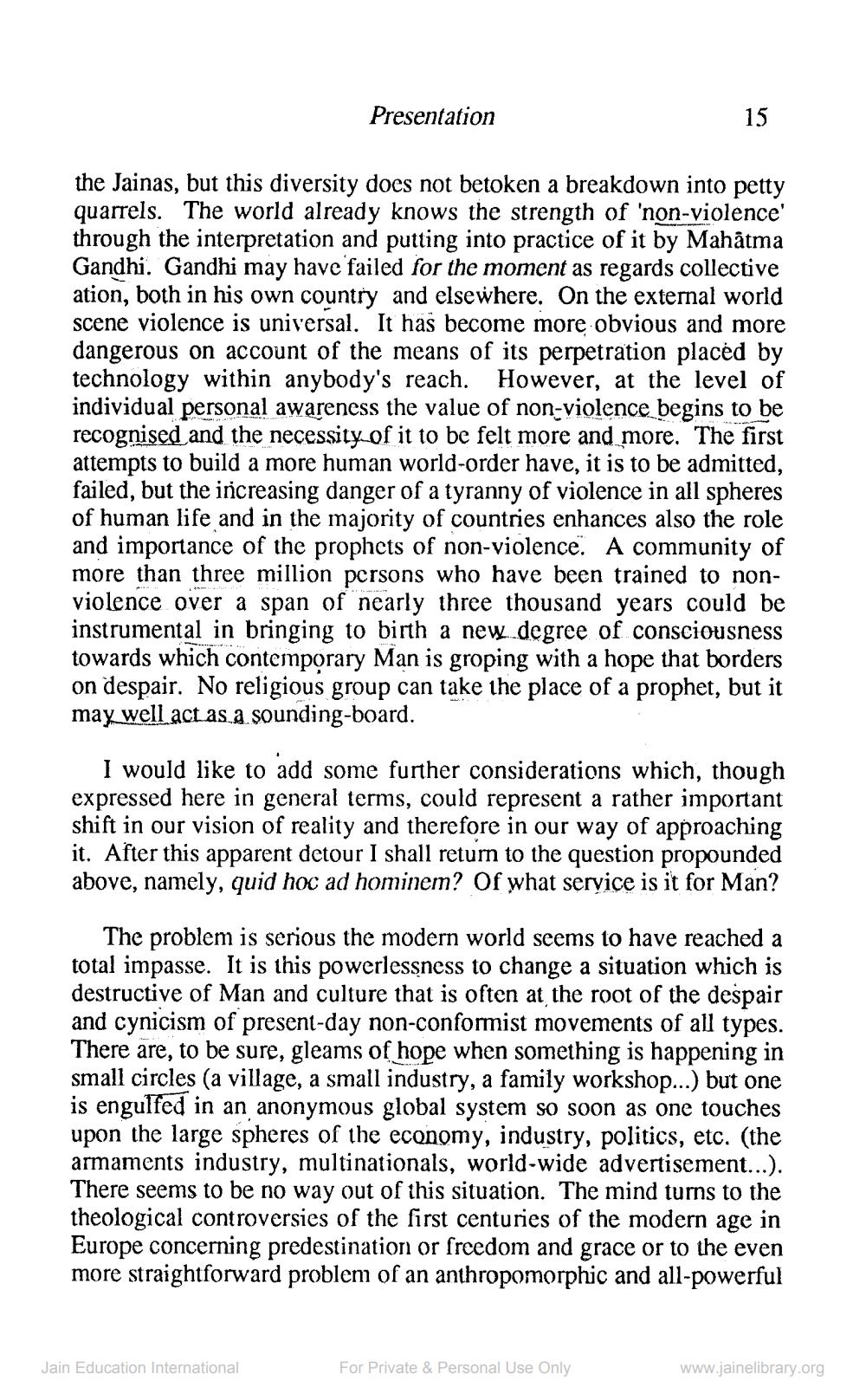________________
Presentation
15
the Jainas, but this diversity does not betoken a breakdown into petty quarrels. The world already knows the strength of 'non-violence' through the interpretation and putting into practice of it by Mahatma Gandhi. Gandhi may have failed for the moment as regards collective ation, both in his own country and elsewhere. On the external world scene violence is universal. It has become more obvious and more dangerous on account of the means of its perpetration placed by technology within anybody's reach. However, at the level of individual personal awareness the value of non-violence begins to be recognised and the necessity of it to be felt more and more. The first attempts to build a more human world-order have, it is to be admitted, failed, but the increasing danger of a tyranny of violence in all spheres of human life and in the majority of countries enhances also the role
ortance of the prophets of non-violence. A community of more than three million persons who have been trained to nonviolence over a span of nearly three thousand years could be instrumental in bringing to birth a new degree of consciousness towards which contemporary Man is groping with a hope that borders on despair. No religious group can take the place of a prophet, but it may well act as a sounding-board.
and
I would like to add some further considerations which, though expressed here in general terms, could represent a rather important shift in our vision of reality and therefore in our way of approaching it. After this apparent detour I shall return to the question propounded above, namely, quid hoc ad hominem? Of what service is it for Man?
The problem is serious the modern world seems to have reached a total impasse. It is this powerlessness to change a situation which is destructive of Man and culture that is often at the root of the despair and cynicism of present-day non-conformist movements of all types. There are, to be sure, gleams of hope when something is happening in small circles (a village, a small industry, a family workshop...) but one is engulfed in an anonymous global system so soon as one touches upon the large spheres of the economy, industry, politics, etc. (the armaments industry, multinationals, world-wide advertisement...). There seems to be no way out of this situation. The mind turns to the theological controversies of the first centuries of the modern age in Europe concerning predestination or freedom and grace or to the even more straightforward problem of an anthropomorphic and all-powerful
Jain Education International
For Private & Personal Use Only
www.jainelibrary.org




